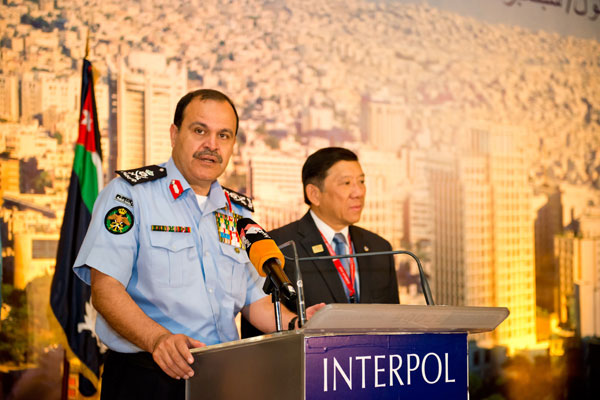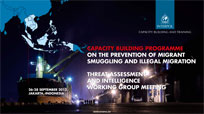AMMAN, Jordan – The 21st INTERPOL Asian Regional Conference has closed with senior law enforcement officials from Asia, the South Pacific and the Middle East approving a series of measures to enhance collective police responses and law enforcement capacity to increase regional and international security.
Recognizing Asia’s role in advancing global security, 150 delegates from some 40 countries at the three-day conference (17-19 September) reviewed a range of law enforcement issues which included terrorism, cybercrime, human trafficking, integrity in sports, maritime piracy, trafficking in illicit goods, pharmaceutical crime and environmental security.
Key measures approved by the conference delegates included recommendations for Asian member countries to:
- further explore, investigate and research the links between trafficking in illicit goods and transnational organized crime
- extend the usage of INTERPOL’s global tools and services, and
- enhance the capacity of member countries to combat emerging crime trends such as cyber-crime, including by reinforcing training programmes
Closing the conference, the Director General of Jordan’s Public Security Directorate, General Hussein Hazza Majali, emphasized the conference’s work in achieving a safer world via law enforcement ‘cooperation through INTERPOL to enhance the capability of member countries to address security threats and to keep nations safe’.
INTERPOL President Khoo Boon Hui said INTERPOL member countries at the conference had sought to ‘collectively identify ways to improve and advance shared interests in the region, underscoring the importance of transnational law enforcement cooperation and demonstrating a commitment to heighten efforts against all international crime threats through innovative actions’, particularly against cybercrime, the involvement of transnational organized crime in illicit goods, human trafficking and maritime piracy.
On the first day of the conference, Japan’s Minister of State and Chairman of its National Public Safety Commission, Jin Matsubara, outlined cybercrime as a prime example of cross-border crime which must be dealt with internationally.
During the conference INTERPOL also officially launched its National Environmental Security Task Force (NEST) initiative, which aims to establish a common platform and approach worldwide for national compliance and enforcement responses, so as to enhance both national and international efforts on ensuring current and future environmental security.
The conference closed with delegates unanimously designating Singapore as host country for the 22nd INTERPOL Asian Regional Conference in 2014.





